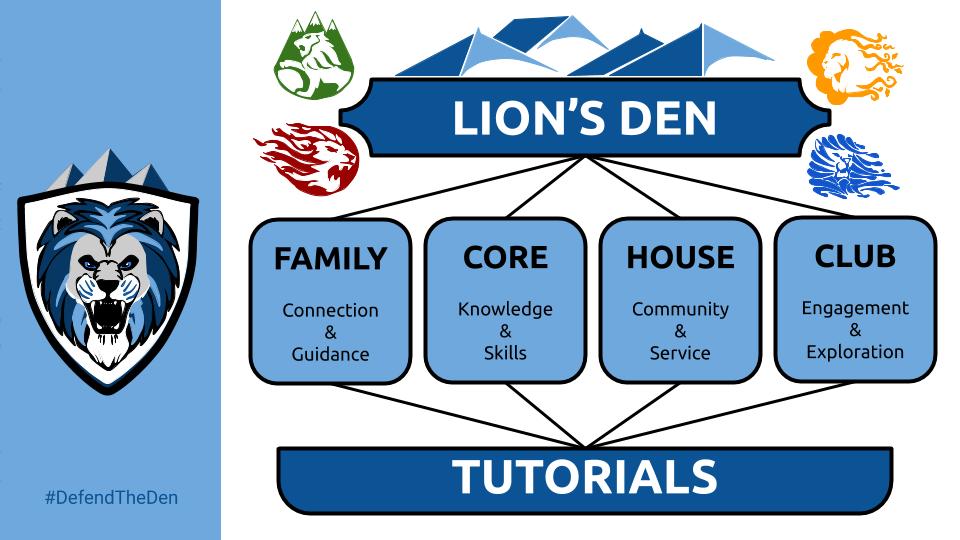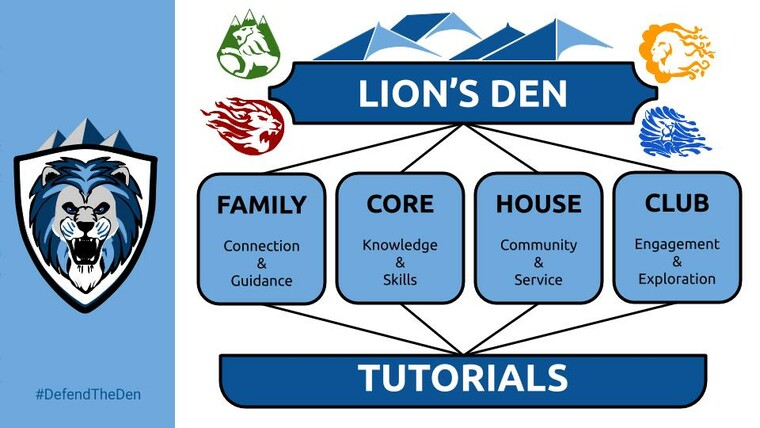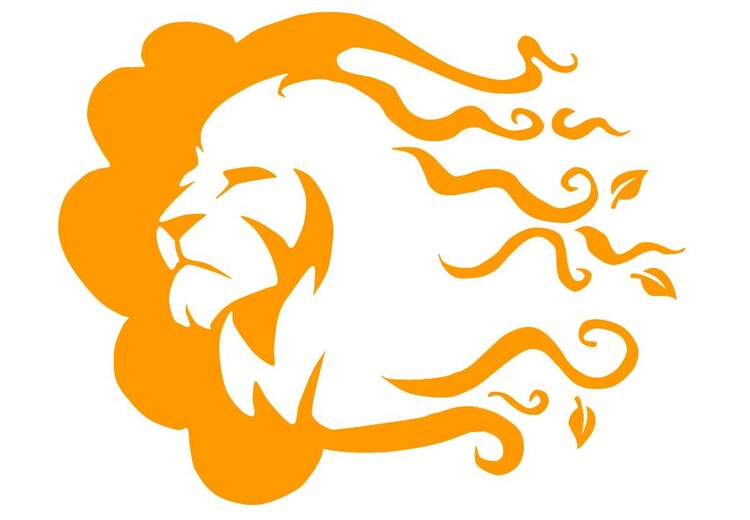What is a Family?
A family is the smallest subunit of our school. Families meet:
- at the start of each school day when they take attendance, deliver announcements, and select tutorials.
- after lunch to read
- during Monday tutorials for focused discussions and activities.
Each family is comprised of one teacher and approximately 24 students from grades seven, eight, and nine. Families gains new students each year, with the family teacher responsible for student placement in their house. The family teacher is the head of each family, and serves as an academic advisor and counsellor who guides the students throughout their three junior high years. Relationships in families are warm and service-oriented, focusing on the “whole student” rather than individual learning tasks. Families also provide positive peer support during junior high, when students place greater emphasis on the opinions of peers. The family teacher is the primary contact person for parents for their child’s three junior high years.
What is a Core Class?
A core class is a group of 24-30 students within a single grade who travel from teacher to teacher for lessons. Core classes learn Math, Science, ELA, Social Studies, Health, French (FI only), and PE together. Core classes learn and are assessed based on the course curriculum. Teachers of the same core class collaborate to create common course outlines, unit assessments, and final exams. Core class composition changes each year, and these new peer configurations provide students with opportunities to learn from different colleagues and build the critical life skills that they will need in their future workplaces.
What is a House?
Our school has four wings and the families within each wing comprise our four houses. The names of our houses are: Ignis (Fire), Aqua (Water), Ventus (Wind), and Terra (Earth). Houses engage in friendly competition throughout the year and participate in intramurals, academic bowls, fun events, and service projects. They provide our students with a variety of opportunities to lead and serve their school and community. Houses are an opportunity for students to make new friends while developing our school values of leadership, service, and kindness. House leaders (students and teachers) meet during tutorial time to plan house and school events and to participate in school events.
What is a Club?
Clubs are groups of students and teachers who meet during tutorial time to explore enriched learning opportunities beyond the typical core curriculum. Clubs often expand core or complementary course curriculum, allowing students to form bonds with colleagues sharing similar interests. They offer an opportunity to present enriched or accelerated material to students in a fun and engaging environment. Clubs can be open or closed depending upon the type of projects and activities that they are working with.
Goals of the DEN Program
- Families: Create meaningful connections between students and staff while providing guidance.
- Core: Offer high quality instruction of knowledge and skills.
- Houses: Build a sense of school community while promoting kindness, leadership, and service.
- Clubs: Increase engagement and by providing opportunities for exploration of student passions.
Junior High Life Skills
- Making good friend choices.
- Working in teams and negotiating conflict.
- Managing relationships with peers and authority figures (parents and teachers).
- Organizing their lives to effectively complete tasks independently.
- Monitoring and taking responsibility for grades.
- Learning to self-advocate and ask for help.
- Self-regulating emotions.
- Cultivating passions and recognizing limitations.
- Making responsible, safe, and ethical choices.
- Identifying a path for their life and then charting their course.
Daily Schedule
|
Time |
Duration |
Grouping |
Description |
|
|
School Opens |
8:15 |
15 Minutes |
School opens for students. |
|
|
Classrooms Open |
8:30 |
10 Minutes |
Family/House |
All rooms open for students. |
|
Advisory |
8:40 |
10 Minutes |
Family |
Attendance, announcements, select tutorials. |
|
Tutorial |
8:50 |
30 Minutes |
|
|
|
Period 1 |
9:20 |
45 Minutes |
Core |
Students attend scheduled classes. |
|
Period 2 |
10:10 |
45 Minutes |
Core |
Students attend scheduled classes. |
|
Period 3 |
11:00 |
45 Minutes |
Core |
Students attend scheduled classes. |
|
LUNCH |
11:45 |
45 Minutes |
||
|
Reading |
12:30 |
25 Minutes |
Family |
|
|
Period 4 |
12:55 |
45 Minutes |
Core/Option 7 |
Students attend scheduled classes. |
|
Period 5 |
1:45 |
45 Minutes |
Core/Option 8 |
Students attend scheduled classes. |
|
Period 6 |
2:35 |
45 Minutes |
Core/Option 9 |
Students attend scheduled classes. |
1. Promoting a sense of belonging and connection
Junior high is a period of transition and change. The four elements of the Den program offer four different environments for students to connect with each other and with a teacher. Multi-grade families and houses promote long-term connections between students in all grades and staff. This begins at a House Kickoff where students in each house are given a T-Shirt for their house and continues with events throughout the year. When students in one grade are competing in various events we hope that students in the other grades have a reason to go and support them. Core classes and clubs provide students with opportunities to connect with peers sharing similar interests. Most importantly, we want every student to connect with at least one trusted adult in our school.
2. Developing student leaders and peer mentors
In Families
Research recommends explicit “kindness ” or “service” activities or instruction during family time. This will take place once per month replacing a Monday tutorial. This could take the form of a talking circle where the entire school focuses on a single topic of discussion or some other form of guided discussion. Younger students would benefit from the advice of their older peers, while older students would find a new role as mentors providing service. Older students are assigned to help younger students with locks, lockers, and family tasks.
In Houses
At the “House” level, both students and staff have leadership opportunities, as houses run many cultural activities for the school. Older students in each house would serve their house in one form or another, and interested teachers in each house support students in various events and activities. For example, teachers interested in intramurals might support these athletic activities while others might lead house events or organize academic bowls. A third group might plan a “house lunch” while another teacher might supervise activities during a Friday tutorial.
In the School
This change also provides an interesting framework for our two school leadership groups to work within as most of the schools with these systems award some form of House Cup to one house at the end of the year. Intramurals would now be organized by grade and house, with three leagues of four teams each. School participation in major events could also see greater participation because it would be tied to an ongoing House Cup. Another interesting note is that most of the schools who have adopted a house system comment on the reduced levels of student discipline.
3. Supporting academic learning
As a Family Teacher
Family teachers are long-term mentors and advocates for students in their family. These teachers discuss their students with other teachers on CRM days and support purposeful tutorial selections to promote their students’ progress and development over a three year period.
With Individual Program Plans
Family teachers are responsible for their students’ IPPs for three years. These teachers will become experts in their students’ programming and are the primary parent contact.
In the CRM Process
During the family time on a Monday preceding a CRM Friday, students complete a mark update and concern sheet for their homeroom teachers. This provides family teachers with regular feedback from their students and ensures that all students use the portal regularly and are aware of their marks. Our collaborative response model philosophy utilizes a “meet and take action” focus rather than a “sit and discuss”.
4. Having Fun
Houses should provide many opportunities for students and staff to have fun together. Whether through friendly competition and rivalry between houses or through house events and activities, houses provide a platform for positive social interaction. Houses provide students with a tangible named community that they belong to. In a world where individuals increasingly feel alienated from one another our houses and families would provide students with safety and stability. The most obvious reflection of this fun would be house events. These could take the forms of feasts, festivals, dances, or parties. These informal opportunities for students and staff to connect with other should help all house staff to better know and understand their house students.











